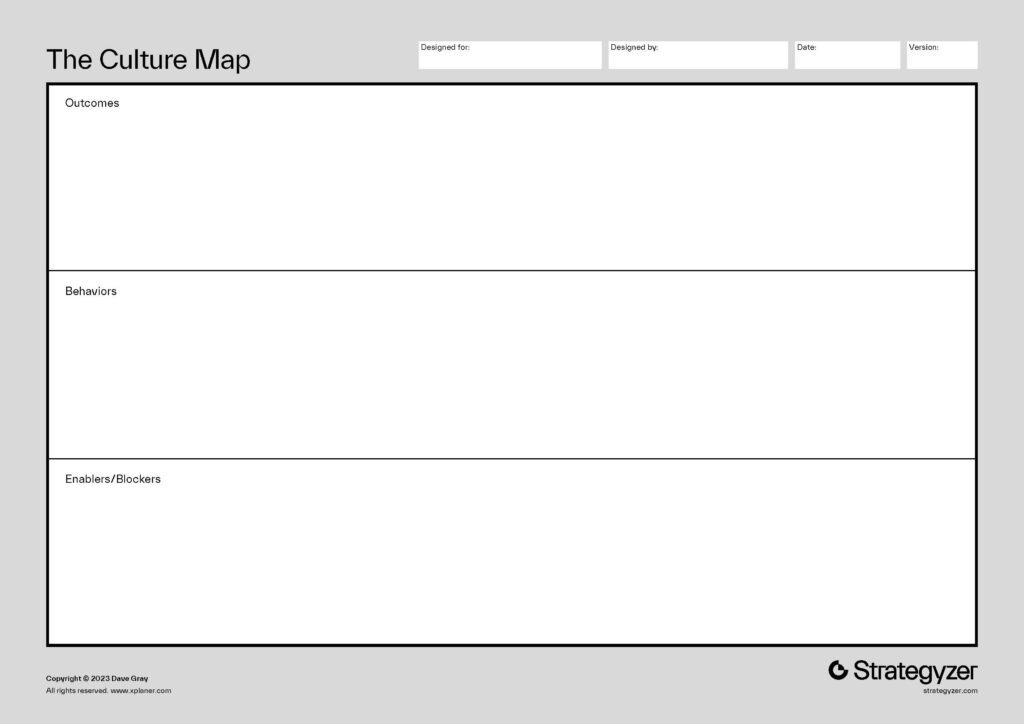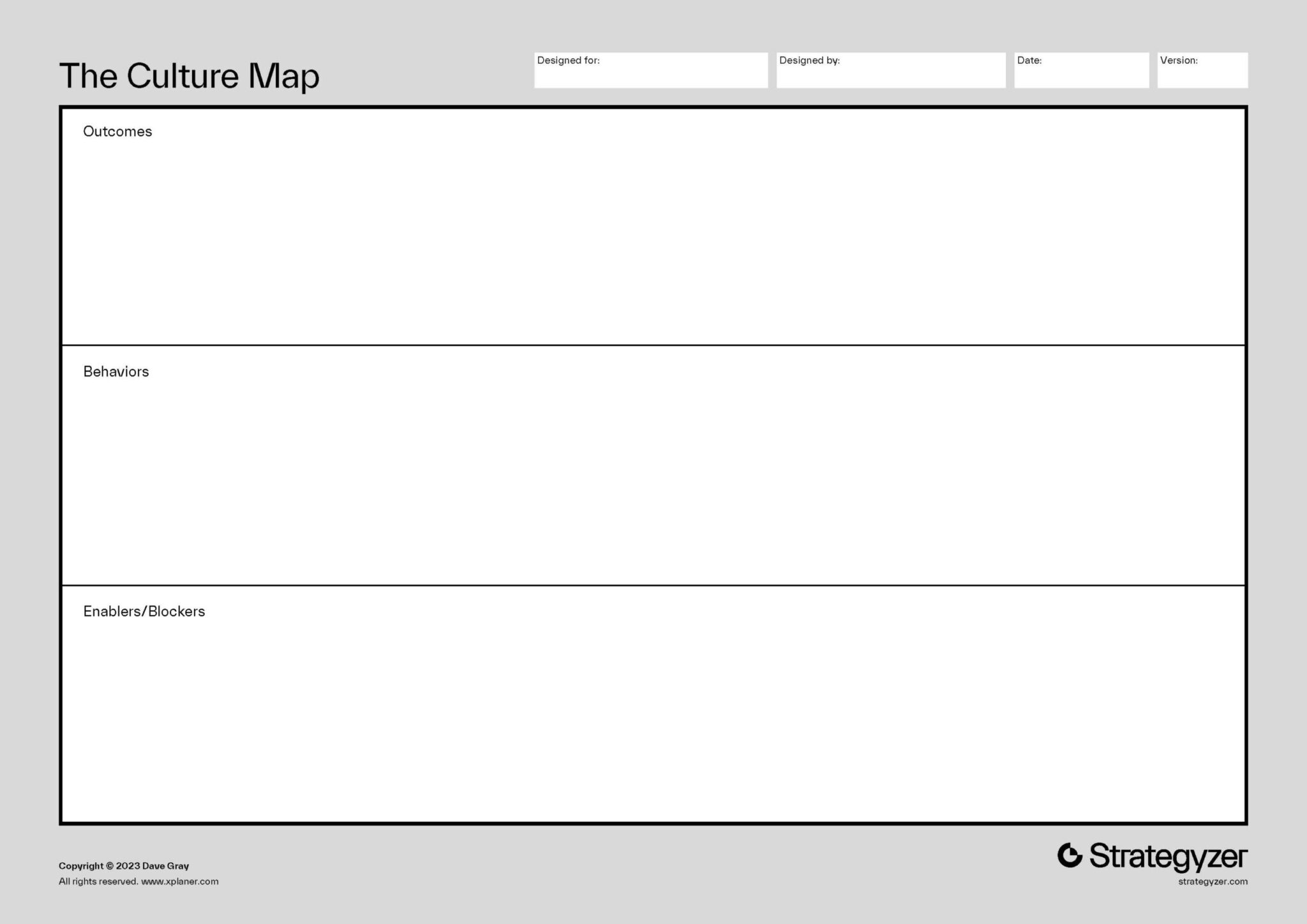
🚀 Do you want to create a stronger company culture?
Corporate culture influences all – from guest experiences and employee engagement to profitability and brand strength. But how do you work strategically with culture in a way that actually makes a difference in everyday life?
The Culture Map, developed by Strategyzer, is a powerful tool for mapping, analyzing and improving corporate cultures. By identifying what strengthens and what is preventing culture, companies can create a direction that not only feels right – but also produces measurable results.
🚨 The big challenge many companies miss
Many businesses in the service industry lack a coherent strategy to build a value-driven service culture.
✅ Strong leadership
✅ Clear values that permeate the entire organization
✅ Systematic service delivery
When these three principles work together, a structured, systematized and value-driven service experience is created – at every guest meeting. It's not about one-off initiatives, but about building a culture that lasts over time.
“The Culture Map” is a strategic tool developed by Strategyzer to design, analyze, and strengthen corporate cultures. It is particularly effective in collaborative environments and can be adapted to the unique challenges of different industries – such as the hospitality and service industries.
Below is a structured methodology for how you can use The Culture Map to improve and strengthen the culture within your hotel operations.
Step 1: Map the existing culture
To understand your current culture, you start by mapping out factors that both enable and hinder its development. This can be done individually or in small groups.
• Enablers: For example, training programs, digital tools and committed leadership.
• Blockers: For example, high staff turnover, lack of resources and poor communication.
This analysis provides a clear picture of the current situation and helps identify what changes are needed.
Step 2: Create a shared understanding
Bring your team together for a review of the mapped culture. Through an interactive discussion, you can identify patterns and insights that might otherwise be lost.
An effective way to strengthen this discussion is to:
• Encourage concrete examples: Have employees share specific situations that illustrate the culture's strengths and challenges.
• Visualize the result: Use a physical or digital board where you compile a shared cultural map.
Gather the team to jointly explore and discuss the current cultural map. This process should be carried out in an extended session to allow a thorough review of all relevant aspects and perspectives.
Step 3: Design a workshop for change
Plan a workshop with the aim of transitioning from the current to the desired culture. The workshop should focus on:
• Which behaviors should be reinforced?
• What obstacles need to be addressed?
• Concrete measures and areas of responsibility
💡 The garden metaphor
See the corporate culture as a garden where behaviors are the roots and the results are the fruits. Identify what nourishes the culture (commitment, training) and what stifles it (lack of clear guidelines, unclear leadership).
Step 4: Bring cultural work to life
A culture is not created through a document – it is created through daily actions. To integrate work long-term:
• Place the culture map visibly in the business to remind everyone of the direction.
• Revisit and adjust the cultural map regularly to ensure that development is going in the right direction.
• Link values to results – ensure that they permeate all decisions and actions.
Core values that drive results
To strengthen both guest experience and corporate culture, your core values should permeate all parts of the business:
✅ Guest focus – Create exceptional experiences
✅ Quality – Deliver the highest standards in every detail
✅ Respect – For guests, colleagues and the business
✅ Integrity – Stand up for your values even when no one is looking
✅ Responsibility – Take ownership of service and guest satisfaction
✅ Team game – Collaboration is the key to success
💡 Alternatively, you can start with your core business and focus on:
• Hospitality satisfaction
• Employee satisfaction
• Profitability
By actively working with The Culture Map hotels and service companies can not only improve their internal culture, but also optimize their guest service and work environment. This leads to increased guest satisfaction, stronger employee engagement and long-term profitability.
📌 Do you want to implement this in your business? Contact us at School of Service then we will help you take the next step.
Download the Culture Map, source: https://www.strategyzer.com/library/the-culture-map
Oscar Lindeberg, CEO, School of Service

